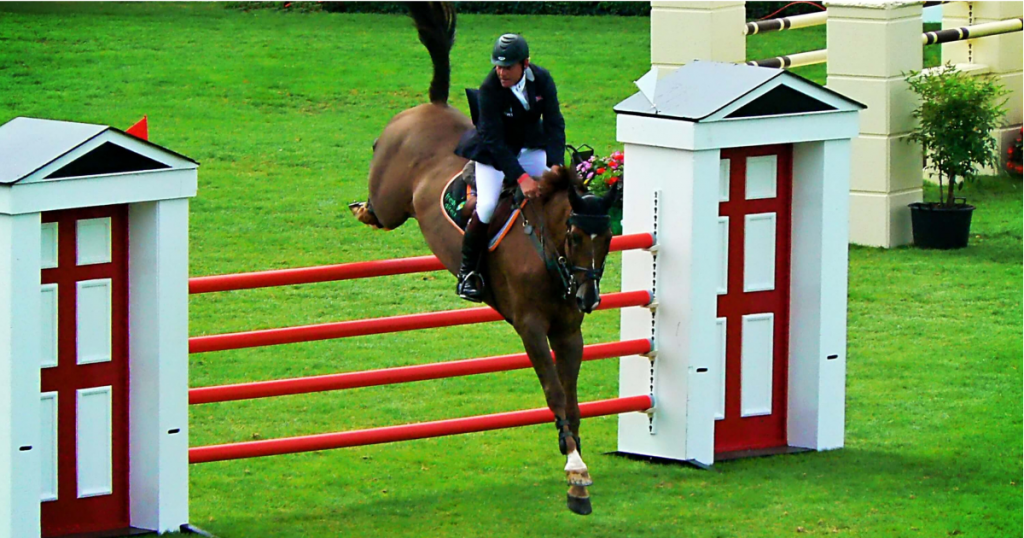USEF Safesport

Everyone is talking about Safesport at horse shows right now. It’s a new policy in effect as of June 1, 2019, mandated by US Congress and regulated by the USEF, that is designed to minimize the risk of child sexual abuse. It’s safe to say everyone is supportive of that purpose, but the policies represent a huge change for most programs. They are a little bit confusing and even a little intimidating for some. I think that this is something, as our sport continues to grow, that we as professionals need to take seriously and learn how to adapt into our programs.
Somewhat a continuation of our Horse Show Leases Safety Series, we will outline the USEF Safesport policies and information as well as the resources available for learning more. The full name of the policy is: U.S. Equestrian Federation’s Minor Athlete Abuse Prevention (MAAP) policies. These policies apply to all other amateur sports organizations and governing bodies as well, with the goal of limiting one-on-one interactions between minor athletes and adults who are not their parent/legal guardian. So, other sports organizations are in the process of adopting similar procedures.
These policies apply to USEF members who are 18 years old and older (regardless of their USEF age), referred to as “adults” below. They seek to protect anyone under 18 years of age.
-
“While at USEF-sanctioned events, adults’ one-on-one interactions with minors must be observable and interruptible.”
Basically, this means that trainers cannot hold private training sessions or meetings that are totally private. It seems like this shouldn’t be hard to accomplish- horse shows happen more or less out in the open. Even if a student and trainer are in a tackroom, as long as it’s possible for someone to walk in and interrupt, it meets the standard. However, if needed, parents/ legal guardians can give written consent, as long as it’s updated every 6 months. USEF provides sample consent language on their website.
-
Adults must include another adult on all electronic communications (phone calls, texts, emails, social media messaging, etc.) with a minor. This requirement applies at all times, whether at a USEF-sanctioned event or at home.
This is, from what I’ve heard, one of the hard policies to get used to. But, it’s not really so bad once you get in the habit. In any text, or direct message, email, etc, just include a parent, co-trainer, groom, rider, or anyone over 18. With a phone call, have them on speakerphone, or include a trusted adult party on the call. It’s just a matter of getting into the habit. One way you might remember is to put a little note in the contact information of minors to remind you of the policy. For example, you could say “Sally (MAAP)” or “Suzy (include adult).”
-
Adults and minors can continue to friend or follow each other on social media platforms. They can continue to interact with each other’s posts that are visible to other users of the platform. However, adults cannot maintain private messages with minors on social media or through any electronic communications, unless another adult is included in the communication.
This is pretty straight-forward. Comment on a post, no problem. If you want to have direct messages, include an adult in them. For example, you could have a group of riders that are kids in direct messages, and as long as you include someone over 18 (groom, assistant, college-age rider) you are meeting the standard.
-
Adults may travel with a minor as long as another adult or two other minors are in the vehicle as well. Adults must obtain written consent from a legal guardian before traveling with a minor alone.
I know that adults and minors end up traveling together a lot, but this is easy if another adult is there, or there are three minors. This is also a good policy that will probably help avoid plenty of problems. Sometimes, though, traveling with one minor might be hard to avoid- so again, parents can provide consent. Refer to USEF’s sample consent language that includes a section for local travel.
-
Working students or barn workers under 18 years of age who travel or live with a trainer must have documented legal guardian consent to do so.
If you have an underage working student living and traveling with you, this is the absolute bare minimum. USEF provides sample informed consent language that can be used to create release forms. This situation makes a minor particularly vulnerable, so giving them some extra protections is a great policy.
USEF addressed some of the initial confusion and concerns on their site with this statement:
USEF recognizes one-on-one interaction with trusted adults is not only healthy and valuable for a child but necessary to the coach/trainer and athlete relationship. USEF’s policies aim to balance this fact with the need to protect children in our sport. USEF understands the majority of child sexual abuse is perpetrated in isolated, one-on-one situations, and by reducing such interactions between children and adults, these policies seek to reduce the risk of child sexual abuse.
Be sure to check out the complete list of policies at USEF.com. They have a lot of additional resources on their site for minors and adults, and it’s worth checking out. Although these policies are designed to prevent sexual abuse, it seems like they could also go along way to curtailing the emotional abuse that can creep its way into sports. Generally, it’s going to make everyone a little more accountable. We should all be willing to get on board to do everything we can to prevent abuse.
If you have any more questions about this, or shows in general, contact Alicia Wilkerson today!
- Twelve Hot Tips for the New Horse Show Parent - August 27, 2019
- The Equitation Look - August 17, 2019
- Balancing Riding with School - August 8, 2019

